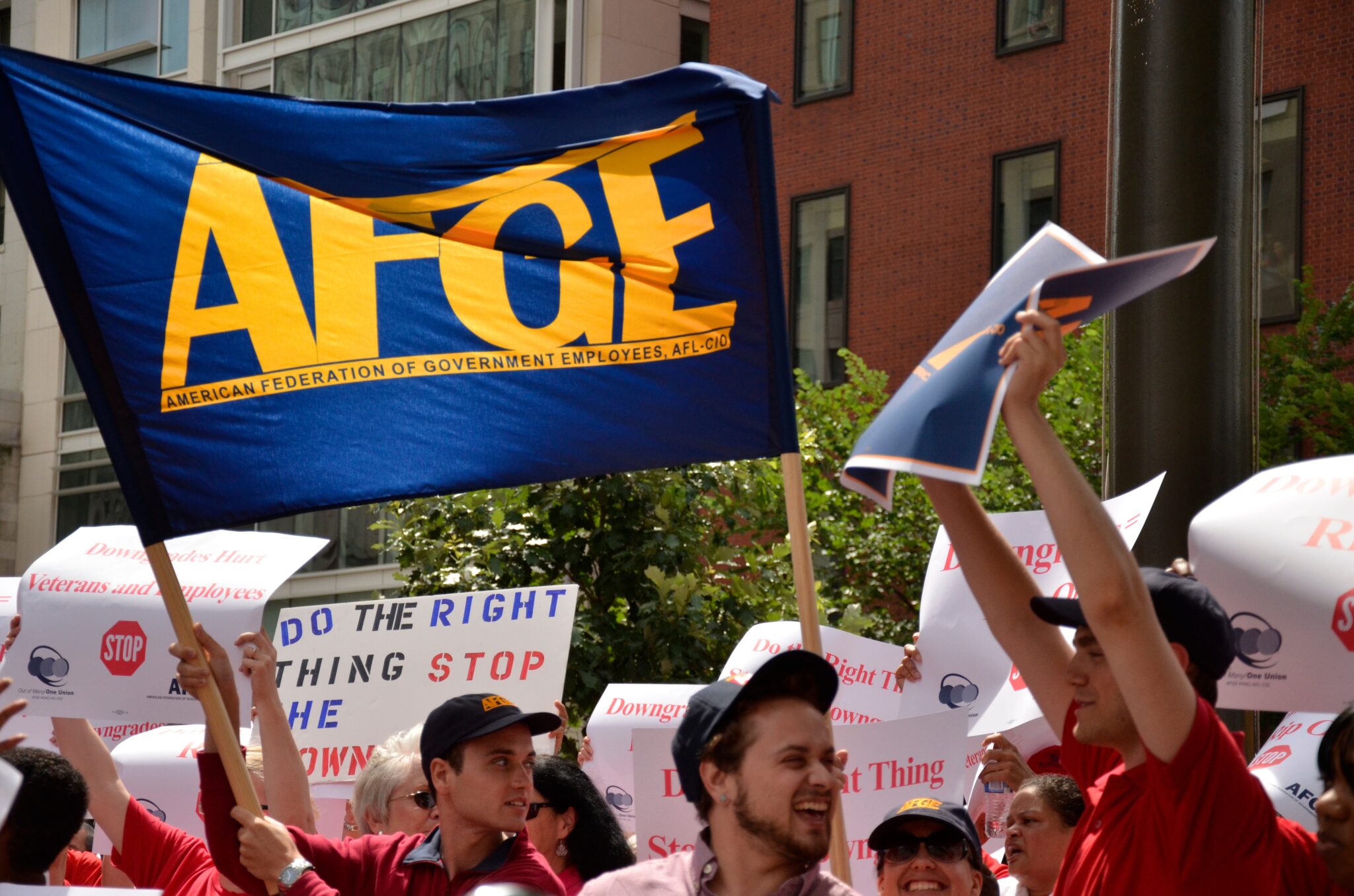
Mila Rostain is a student at Harvard Law School.
In today’s News and Commentary, a district judge issues a preliminary injunction blocking agencies from implementing Trump’s executive order eliminating collective bargaining for federal workers, workers organize for the reinstatement of two doctors who were put on administrative leave after using an internal directory to organize their coworkers, and Governor Lamont vetoes unemployment benefits for striking workers.
On Tuesday, US District Court for the Northern District of California Judge James Donato issued a preliminary injunction blocking agencies from implementing President Trump’s executive order eliminating collective bargaining rights for federal workers. The executive order invoked the national security exception to exclude certain agencies from the Federal Service-Labor Management Relations Statute. Along with the executive order, the White House published a fact sheet that singled out unions resisting Trump. Judge Donato held that the six unions who sued were likely to succeed on the merits of their claim that the executive order retaliated against the unions in violation of their First Amendment free speech rights and that they would likely face irreparable harm without the preliminary injunction. President of the National Association of Government Employees, David Holway, stated, “the court made it clear: national security cannot be used as a smokescreen to silence federal workers.” The preliminary injunction comes as the D.C. Circuit stayed a similar injunction issued by Judge Paul Friedman regarding the same executive order’s application to the National Treasury Employees Union.
Workers at University Hospitals, a healthcare system based in Cleveland, Ohio, launched a petition calling for the reinstatement of two doctors involved in union efforts. University Hospitals claims that the doctors were put on administrative leave because they improperly accessed an internal directory that includes personal cell phone numbers of doctors. According to the petition, the physicians did not violate a policy against such use of the internal directory, and that instead, University Hospitals removed the two physicians in response to their union activity.
Finally, Connecticut Governor Ned Lamont vetoed legislation that would have granted unemployment benefits to striking workers after two weeks. As Meredith previously pointed out, Lamont was expected to veto the legislation. Lamont argued that the bill would have fundamentally altered the purpose of unemployment insurance, because unemployment benefits are intended for those “who are out of work through no fault of their own.” Lamont expressed concern that the bill would have driven business from the state. Union leaders had argued that providing unemployment benefits to striking workers after two weeks was one of the ways the state could even the playing field without running into preemption issues.






Daily News & Commentary
Start your day with our roundup of the latest labor developments. See all
February 20
An analysis of the Board's decisions since regaining a quorum; 5th Circuit dissent criticizes Wright Line, Thryv.
February 19
Union membership increases slightly; Washington farmworker bill fails to make it out of committee; and unions in Argentina are on strike protesting President Milei’s labor reform bill.
February 18
A ruling against forced labor in CO prisons; business coalition lacks standing to challenge captive audience ban; labor unions to participate in rent strike in MN
February 17
San Francisco teachers’ strike ends; EEOC releases new guidance on telework; NFL must litigate discrimination and retaliation claims.
February 16
BLS releases jobs data; ILO hosts conference on child labor.
February 15
The Office of Personnel Management directs federal agencies to terminate their collective bargaining agreements, and Indian farmworkers engage in a one-day strike to protest a trade deal with the United States.